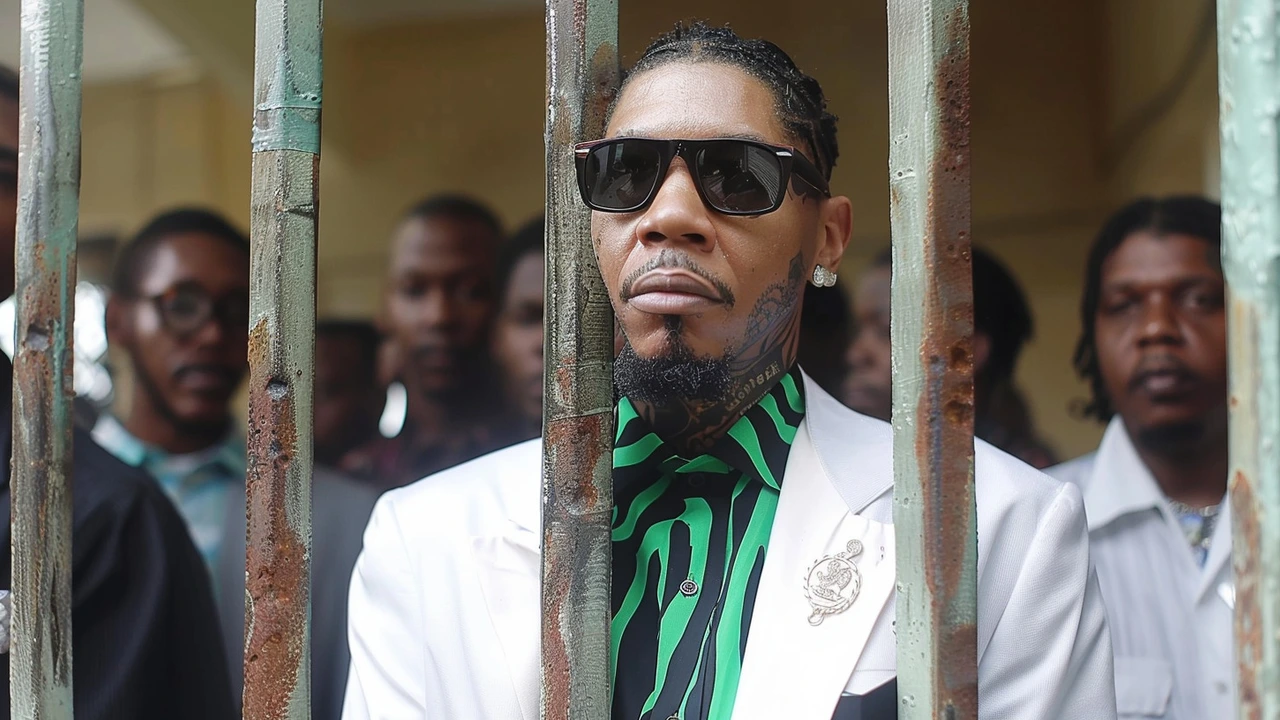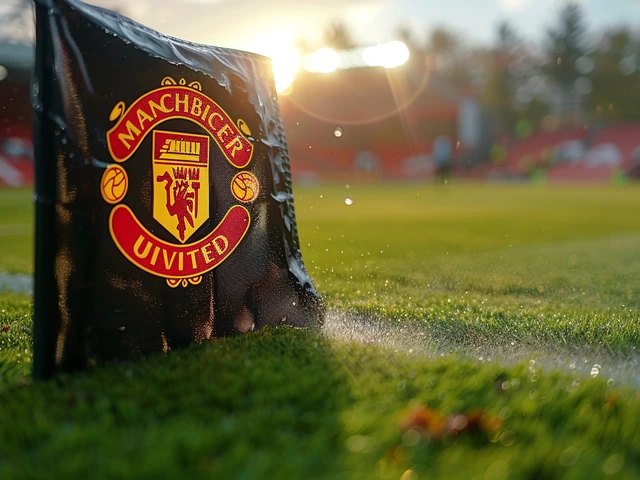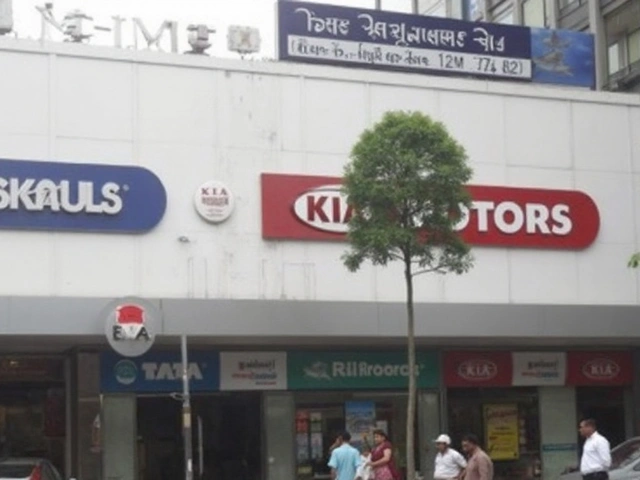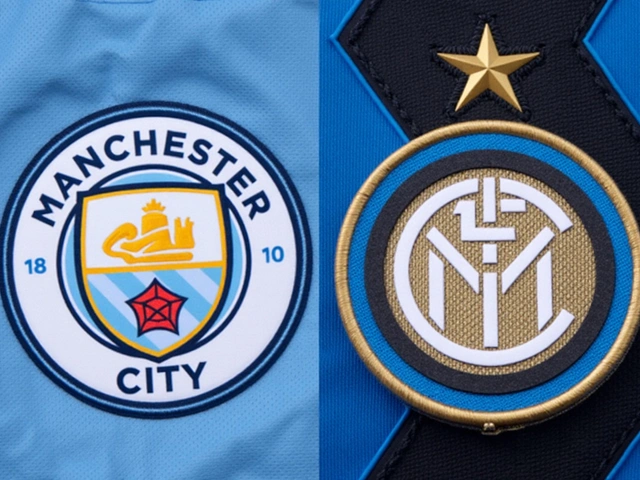Vybz Kartel and Co-Accused Denied Bail Despite Overturned Convictions
On a tense Thursday morning, the much-anticipated court ruling was delivered by Supreme Court Justice Andrea Thomas, leaving many fans and supporters of dancehall star Vybz Kartel disappointed. Kartel, whose real name is Adidja Palmer, along with his co-accused Shawn 'Shawn Storm' Campbell and Kahira Jones, were denied bail. The court's decision, clearly grounded in the ongoing nature of their legal battles, did not come as a complete surprise to those following the case closely.
The Long Road to Justice: A Timeline of Events
The convoluted legal journey for Kartel and his associates began over a decade ago with the high-profile murder of Clive 'Lizard' Williams in 2011. Following their arrest, the trial attracted considerable media attention, not least because of Kartel's prominent status in the dancehall music scene. In April 2014, the three men, along with a fourth co-accused, Andre St John, were sentenced to life imprisonment with varying eligibility for parole. For Kartel, parole could be considered after serving 35 years.
However, in a dramatic turn of events on March 14, the Judicial Committee of the Privy Council in the United Kingdom overturned their convictions. This decision offered a glimmer of hope to Kartel and his co-accused, affirming that there were significant issues with how their initial trial was conducted. The overseas court's ruling culminated years of appeals and legal wrangling, suggesting that potential miscarriages of justice might have occurred.
Why the Bail Was Denied
The denial of bail by the Supreme Court was primarily based on the fact that the murder charge still exists and their appeal is still pending in the Jamaican courts. According to Justice Thomas, granting bail was not an option as it could potentially compromise the ongoing judicial process. This pivotal stipulation underlines the gravity of the charges and the unresolved legal questions that remain.
Kartel and his co-accused had filed a habeas corpus application in hopes of securing their release, citing undisclosed issues. A writ of habeas corpus is a resource defendants can use to challenge the legality of their detention, claiming they are not being held lawfully. Unfortunately for Kartel and his associates, this legal maneuver did not sway the court in their favor. The Supreme Court’s adherence to protocol showcases the cautious approach it has adopted amid widespread public interest and speculation.
Even though the Privy Council in London overturned their convictions, it didn't equate to immediately being set free. By returning the case to Jamaica's Appeal Court, the ruling has effectively prompted another layer of legal examination. The Appeal Court is now tasked with the decision of whether a retrial is warranted.
The Impact and Public Reaction
The decision to keep Kartel and his co-accused behind bars has elicited mixed reactions. Among his fanbase, there is palpable disappointment and frustration. Kartel's influence in the dancehall genre is immense, and his legal woes have done little to diminish his standing among supporters. Many fans were hopeful that the overturning of his conviction by the Privy Council would lead to immediate freedom; instead, the arduous wait continues.
Conversely, others believe the court's decision to deny bail is a prudent measure, ensuring that justice is comprehensively served. Given the severity of the charges, this group argues that it is imperative for the judicial process to take its full course without any pre-emptive disruptions. The balance of maintaining the rule of law while dealing with high-profile cases underscores the difficulties courts face when rendering such critical decisions.
Looking Ahead: What Comes Next
The case now pivots back to Jamaica's Court of Appeal, where judges will need to deliberate on the necessity of a retrial. This impending decision will be instrumental in charting the future course for Kartel and his co-accused. Observers and legal pundits suggest the process could extend for months, or even longer, placing the accused in a prolonged state of uncertainty and continued imprisonment.
Meanwhile, Vybz Kartel's legal team remains resolute, ready to continue their fight for his freedom. They are expected to leave no stone unturned in advocating for their client's release and clearing his name. The stakes are high; the outcomes of these proceedings will ripple through the local and international dancehall community and could have broader implications for how high-profile cases are managed in Jamaica.
In the corridors of courts and public opinion, the saga of Vybz Kartel and his co-accused serves as a complex dance between fame, justice, and the legal system’s intricate mechanisms. As the appeals continue and the possibility of a retrial looms, all eyes will remain fixated on the developments in this landmark case.
An Unfolding Legal Saga
The story of Vybz Kartel's legal journey is far from over. The denial of bail means yet another chapter is still to be written. For now, Kartel continues to influence the dancehall scene from behind bars, while his fate hangs in the balance awaiting the Court of Appeal's next move. As the wheels of justice turn slowly, the world watches with bated breath, wondering what the future holds for the man whose life and music have sparked so much debate and controversy.







Eduardo Lopez
It's disheartening to see the court prioritize procedural safeguards over the lives of victims, especially when the murder charge remains untouched. The legal system should act with compassion for those who have suffered, not indulge in endless appeals that only prolong grief. While some fans cheer for Vybz Kartel, we must remember the principle that no celebrity is above the law. Denying bail is a reasonable step to ensure the integrity of the ongoing investigation. Justice is not a performance; it's a responsibility to the community. Let’s keep the focus on the victims rather than the hype around the artist.
Nancy Perez de Lezama
The decision to keep the accused behind bars is understandable given the seriousness of the allegations. However, the legal process seems to drag on for years, which can be frustrating for everyone involved. It appears the system is trying to balance due process with public pressure, but the pace feels sluggish. Ultimately, the law must protect both the presumed innocent and the victims.
Matt Heitz
From a jurisprudential perspective, the Supreme Court's refusal to grant bail aligns with the doctrine of preserving the probative value of ongoing proceedings. Any premature release would undermine the legal framework that upholds the rule of law in our sovereign nation. Moreover, the precedent set by acquitting a high-profile figure without exhaustive evidentiary scrutiny could erode public confidence in the criminal justice apparatus. Let us not permit celebrity status to eclipse statutory mandates, lest we jeopardize the societal contract that underpins our legal order.
Susan Mark
Building on that point, it's worth noting that the appellate courts have a duty to review procedural irregularities, which can be a lengthy but necessary endeavor. The legal community often emphasizes due process as a safeguard against wrongful convictions, and in this instance, that principle is being exercised. While fans may feel impatient, the courts must ensure that every facet of the case is meticulously examined before any final determination is made.
Jason Jennings
Fans will keep shouting, but the law moves at its own pace.
Diego Vargas
Honestly, most people dont get how complex a murder case like this is. The prosecution needs solid forensic links, and the defense will keep pulling whatever loopholes they can find. It's not just about one court's opinion; it's about the whole chain of evidence that has to hold up under scrutiny. So yeah, bail denial makes sense until everything’s re‑evaluated.
Alex Lee
The whole thing is a waste of resources and keeps the real victims in the shadows.
Vida Yamini
It is important to recognize that the legal saga surrounding Vybz Kartel is more than just a headline story it is a reflection of how societies grapple with fame and accountability the courts have a difficult job balancing public opinion and the rights of the accused the process may feel slow but due process is a pillar of justice the extended timeline allows for thorough examination of evidence and ensures that any ruling is built on a solid foundation the community of fans can feel a sense of loss when their idol is behind bars yet they also have an opportunity to consider the impact of the alleged crimes on the victims the media should aim to present facts without sensationalizing the drama the legal professionals involved are working within a framework that demands impartiality the appellate system provides a mechanism for correcting potential errors and that is a strength not a weakness the recent denial of bail, while disappointing to supporters, reaffirms that the court is taking its responsibilities seriously the case also highlights the importance of transparent legal procedures for maintaining public trust the ongoing appeals will likely produce more insight into procedural flaws that were previously identified the eventual outcome, whatever it may be, will set a precedent for how high‑profile cases are handled in the future the conversation around this matter should include not only fans but also advocates for victims’ rights and legal reform the broader lesson is that no one, regardless of status, is exempt from the law and that is a comforting principle for many people who believe in equality before the court the journey ahead is uncertain but the commitment to justice remains steadfast we can only hope that the final resolution brings closure to all parties involved
James Lawyer
While appreciating the comprehensive overview provided, it is also pertinent to examine how international legal standards intersect with local jurisprudence in this case. The interplay between the Privy Council’s decision and the Jamaican appellate process raises questions about jurisdictional authority and procedural harmonization. A systematic analysis of precedent could illuminate potential pathways for expediting resolution while safeguarding due process. Ultimately, fostering dialogue among stakeholders may contribute to a more balanced outcome that respects both the rights of the accused and the concerns of the victims’ families.